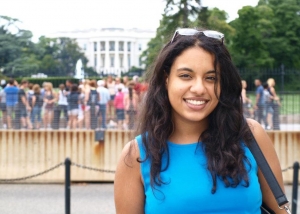What Does the Death of Hugo Chavez Mean for Venezuela?
Hugo Chavez was one of the most discussed and polarizing figures in recent political history. The eccentric and provocative leader came into power in 1999 in Venezuela, hoping to rid the country of its rampant corruption and lift the disadvantaged out of poverty. A leader with more heart than common sense, he would spout phrases such as, “Go and comb the land, search out and destroy poverty and death. We are going to fill [the people] with love instead of lead.” Hugo Chavez took issue with the uneven distribution of wealth, and declared the politics of the previous government ‘undemocratic’.
These were ironic statements coming from an autocrat whose regime, though noble in ideology, would be marred by censorship, outrageous antics, and a single-minded focus on improving the quality of life for one sector of his society while blatantly ignoring all others. The death of Hugo Chavez in 2013 left the nation reeling – their future uncertain and their country more violent and infinitely more divided. While some celebrated and others wept, on the day of his funeral the most predominant feeling was confusion – where would Venezuela go from here?
Hugo Chavez: The Latin American Robin Hood.
While Hugo Chavez’s politics were dubious, his legacy as a Latin American Robin Hood, a champion of the poor, is powerful. Albeit grudgingly, even the upper classes will admit that conditions had improved for the poorest of Venezuelans under his rule. Unemployment levels, infant mortality rates, extreme poverty, and illiteracy rates plummeted as a result of his policies. Yet many middle-class Venezuelans felt the sting of his reforms.
Within the years of his rule, Venezuelans saw their country undergo radical and bizarre changes; from the invention of an entirely new time zone, to the nationalization of key industries, to a skyrocketing crime rate, and steep rises in inflation. Hugo Chavez won the hearts of the oppressed lower class by actively antagonizing the middle and upper classes, a risky and potent formula that inspired great love in some circles and perhaps even greater rancour in others.
Venezuela as a nation has been grappling with the mixed results of such an eclectic leader. Many Venezuelans who migrated lament the changes to their country. They paint a grim picture of a nation of crumbling buildings and random violence, insisting that many young professionals are desperate to leave, and feel trapped in a country that seemed set against their development. Simultaneously, reports from the poorest are different. While upper-class millennials may have difficulty becoming CEOs, the most disadvantaged are scrambling up the social ladder.
Young mothers now have access to affordable education for their children. Job creation has meant an improvement in quality of life for the working class. Generous social welfare programs have given many the opportunities to study and work, the power of which cannot be underestimated. Hugo Chavez even had his supporters in the West, from the Hollywood actor and activist Sean Penn to the noted scholar Noam Chomsky, remark that many of his policies were “quite constructive”.
Does A Change of Government Mean Progress for Venezuela?
Hugo Chavez’s death has left Venezuela in an uneasy limbo. Currently, power has passed to Nicolas Maduro, the man Chavez himself named his ‘political heir’. Consequently, the famed leader’s passing does not necessarily mean a change in direction for the country; indeed, Venezuela’s future is the subject of great conjecture. Many say that like Peronismo in Argentina, Chavismo is unlikely to die with its namesake, and subsequent politicians will have to prove even more radical than Hugo Chavez to win the affection of the people. Still others state that the country is ripe for change, and eager to vote in the opposing party.
Venezuelan millennials will be the group most shocked by the transition. Hugo Chavez entered power when the oldest were barely adolescents. Most have never known another leader. The idea of a sudden change in government is liberating for some and frightening to others. Before anything else, a reconciliation of ideals is crucial for the country’s progression. However, a recent violent clash between students and Chavistas in Caracas does not offer much hope.
The students petitioned against the unfair advantage Maduro had in the upcoming elections, stating that the government was using unfair tactics that created an imbalanced political atmosphere. Maduro denies these claims, yet reports of censorship and threats of violence have been steady since Hugo Chavez’s death. One may wonder if this could mark the beginning, or the end, of a socialist Venezuela.
The only thing the up-and-coming generation in Venezuela can seem to agree on is that it is a country with great potential; with a booming oil trade, strong ties to the rest of Latin America and the Caribbean, and a devoted populace, Venezuela’s future is now poised to be a great triumph or a bitter tragedy.


